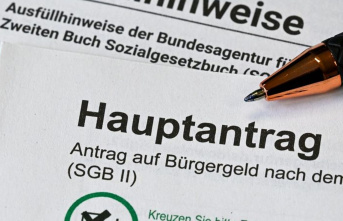Despite ongoing protests, the Israeli government is moving forward with its plan to further weaken the judiciary. The parliament in Jerusalem passed a law on Thursday that will make it much more difficult in future to declare a prime minister incapacitated. This is the first change in the law as part of a highly controversial judicial reform by the new right-wing religious government around Prime Minister Benjamin Netanyahu.
For more than two months there have been regular, massive protests against the government's plans. In the future, Parliament should also be able to overrule decisions of the Supreme Court with a simple majority. In addition, government politicians should gain significantly more influence in the appointment of judges. The coalition around Netanyahu accuses the Supreme Court of excessive interference in political decisions. Critics see the separation of powers in danger and warn of a dangerous state crisis.
The Netanyahu Law
The legislative change passed on Thursday is particularly controversial because it is considered to be personally tailored to Prime Minister Netanyahu and his needs. A corruption process has been going on against the 73-year-old for a long time. In the future, a prime minister could only be removed from office for mental or other health reasons. This is intended to prevent the Supreme Court or the Attorney General's Office from influencing matters.
In the last reading, 61 of the 120 MEPs voted in favour. 47 MPs were against, the others were absent or abstained. If the law is not stopped by the judiciary, a three-quarters majority would be required for impeachment in the future.
Again mass protests across the country
Meanwhile, thousands of people took to the streets across the country to demonstrate against the plans. There were occasional confrontations with the police. In the coastal cities of Tel Aviv and Haifa, among others, the forces used water cannons to take action against demonstrators. According to media reports, dozens of people have been arrested across the country. There were also rallies in Jerusalem and other cities.
In the evening, Netanyahu called for reconciliation in a speech to the nation, but made it clear that he wanted to push the bill further. Parliament will vote on a core element of the reform in its final reading on Monday. The head of government originally wanted to leave for London in the evening. However, he postponed his departure until early Friday morning. In London he wants to meet with Great Britain's Prime Minister Rishi Sunak.
International criticism of return permits in settlements
The Foreign Office in Berlin, meanwhile, has criticized the Israeli parliament's decision to allow settlers to return to four settlements in the West Bank. It represents "a dangerous step towards possible renewed settlement activities," said a spokeswoman. This threatens to further aggravate the already tense security situation in the West Bank.
Netanyahu tried to appease on Wednesday. He assured that the government has no intention of building new settlements there. Whether this promise also applies to the previously evacuated settlements remains open.
Palestinians killed in military action
The security situation in Israel and the Palestinian territories had recently deteriorated significantly again. A further escalation of violence is feared during Ramadan. Experiences over the past few years have shown that tensions increase during this period.
On Thursday - the first day of the Muslim month of fasting - another militant Palestinian was shot dead during an Israeli military operation. According to Israeli information, the 25-year-old is said to have been involved in attacks against Israeli settlements and security forces.
This means that 86 Palestinians lost their lives this year - for example in confrontations with the Israeli army or in their own attacks. During the same period, 14 Israelis and one Ukrainian were killed in attacks by Palestinians.
The Federal Foreign Office tweeted that travel to the West Bank, including East Jerusalem, is currently not recommended, "as increased clashes are currently to be expected there".
Israel conquered the West Bank and East Jerusalem during the 1967 Six Day War. Almost 600,000 Israelis live there today in more than 200 settlements. In 2016, the UN Security Council described these settlements as a violation of international law. The Palestinians want to set up their own states in the West Bank, the Gaza Strip and East Jerusalem.











